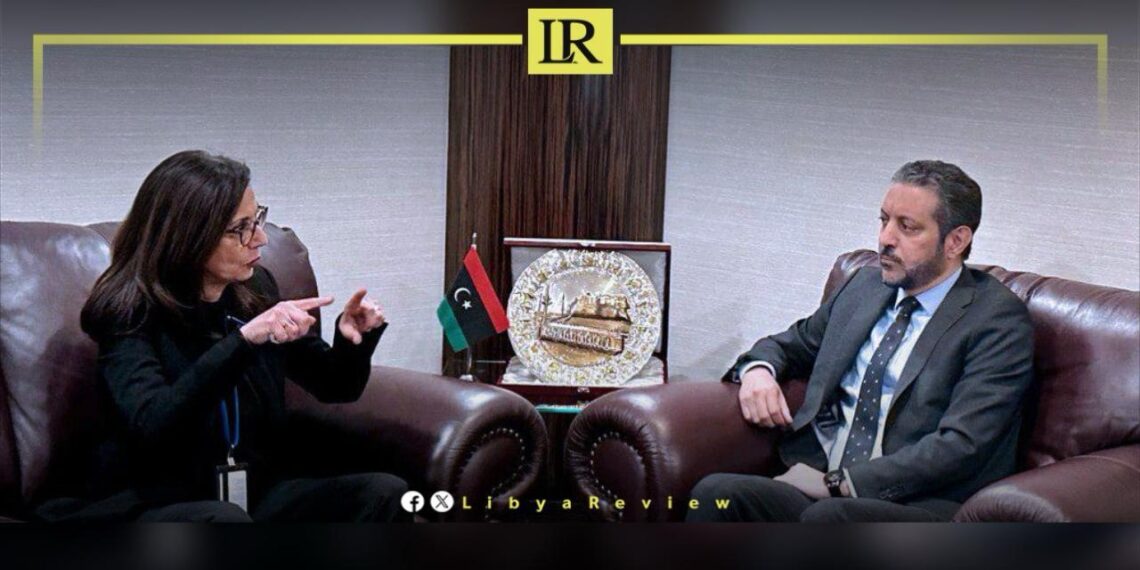In a significant meeting at the Libyan mission in New York, Libya’s Permanent Representative to the United Nations (UN), Taher El-Sonni, and the UN Secretary-General’s Special Representative on Violence Against Children, Najat Maalla M’jid, deliberated on strengthening child protection mechanisms in Libya.
The discussions, as outlined by Libya’s Permanent Mission to the UN, centered around the collaboration to improve legal frameworks and devise national strategies aimed at safeguarding children in times of crisis.
A key focus of the meeting was on bolstering mental health support for children affected by conflicts. The two officials explored various cooperation and capacity-building programs that could support national authorities in this critical area.
This meeting underscores the international community’s and Libya’s commitment to addressing the vulnerabilities of children in conflict zones. Enhancing the protection and well-being of children remains a priority, with efforts underway to implement effective measures that can make a tangible difference in their lives.
Notably, a United Nations Children’s Fund (UNICEF) assessment, conducted with its partners, on the impact of the storm Daniel floods in Derna and the Green Mountain areas of Eastern Libya in September 2023, reveals that approximately 67% of children exhibit negative behavioral changes since the disaster.
Furthermore, 48% of these children are in dire need of ongoing mental, psychological, and social support.
UNICEF highlighted the post-emergency repercussions in Eastern Libya following the storm, which led to the collapse of two dams on the night of September 9th, severely affecting the lives of residents.
The disaster not only altered the city’s landscape but also claimed thousands of lives, leaving deep scars in the community. Children, whose worlds were turned upside down in a matter of hours, were among those most affected by this catastrophe.
Before the storm, Derna was a place of joy and laughter for children, but the situation drastically changed afterward. The report shared stories of children like Nouria, who lost her father to the flood and was displaced from her home, struggling with grief and loss. Nouria recounted the fear and confusion of that night, saying, “the storm took my father, our home, and the sense of security I once felt.”
In response to the disaster, UNICEF, in partnership with the Scouts and Guides in Derna and funded by Japan, the United Kingdom, and Switzerland, launched a comprehensive mental, psychological, and social support initiative aimed at assisting affected children.
The organisation established 16 mobile teams to provide mental health and psychosocial services, prioritizing displaced children, those unaccompanied by guardians, and those directly affected by the floods. As a result, services reached 72,000 affected children through various ground partners.


